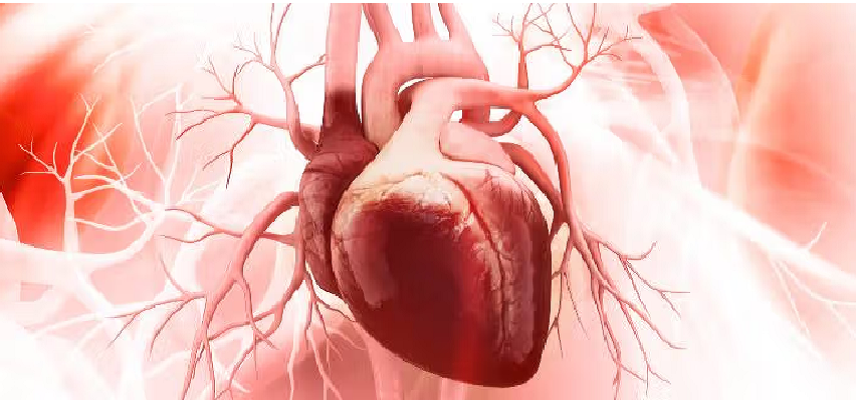Rocket Pharma gets FDA regenerative medicine advanced therapy designation for RP-A601 gene therapy
Overview
Rocket Pharmaceuticals, Inc. a fully integrated, late-stage biotechnology company advancing a sustainable pipeline of genetic therapies for rare disorders with high unmet need, today announced that the US Food and Drug Administration (FDA) has granted Regenerative Medicine Advanced Therapy (RMAT) designation to RP-A601, the company’s investigational adeno-associated virus (AAV)-based gene therapy for the treatment of PKP2-arrhythmogenic cardiomyopathy (ACM), a life-threatening heart failure disease causing ventricular arrhythmias and sudden cardiac death. RMAT designation was granted based on positive safety and efficacy data from the phase 1 RP-A601 clinical trial and will provide the benefits of added intensive US FDA guidance and expedited review through the programme’s development.
Statement from Kinnari Patel: President, Rocket Pharmaceuticals
The US FDA’s RMAT designation for RP-A601 represents a meaningful advancement for Rocket and for patients living with PKP2-ACM, a life-threatening genetic heart disease characterized by ventricular arrhythmias and sudden cardiac death,” said Kinnari Patel, President, head of R&D of Rocket Pharmaceuticals.
“This marks the fifth RMAT designation in our history and underscores our commitment to developing potentially curative gene therapies for patients with rare and inherited cardiovascular diseases. The early clinical data for RP-A601 are highly encouraging, and we look forward to continued collaboration with the US FDA throughout the programme’s development.”
The RMAT designation
- RMAT designation was established under the 21st Century Cures Act to expedite the development and review of promising therapeutic candidates, including gene therapies, that are intended to treat, modify, reverse or cure a serious or life-threatening disease.
- RMAT designation provides several benefits, such as early interactions with the US FDA, including discussions on surrogate or intermediate endpoints that could potentially support accelerated approval and satisfy post-approval requirements, and potential priority review of a product’s biologics license application.
Phase I clinical trial results
- Preliminary results from the ongoing phase 1 clinical trial of RP-A601 presented at the 2025 Annual Meeting of the American Society of Gene and Cell Therapy demonstrated encouraging early safety and efficacy.
- All three adult patients treated with a single dose of RP-A601 (8x10¹³ GC/kg) showed increased PKP2 protein expression, including 110% and 398% increases in the two patients with low baseline levels, as well as improved desmosomal integrity with relocalization of key structural proteins.
- Improvements or stabilization were observed across clinically meaningful endpoints, including right ventricular function, ventricular arrhythmias, and quality of life highlighted by increases of 34–41 points in KCCQ-12 scores and improvements in NYHA classification from Class II to Class I.
- The safety profile was favourable, with RP-A601 generally well-tolerated, no dose-limiting toxicities, and most adverse events being mild or moderate and self-limited.
About the gene therapy: RP-A601
- RP-A601 is an investigational gene therapy for the treatment of plakophilin-2 related arrhythmogenic cardiomyopathy (PKP2-ACM).
- RP-A601 consists of a recombinant adeno-associated serotype rh74 capsid containing a functional version of the human PKP2 transgene (AAVrh74.PKP2) which is administered as a single intravenous (IV) infusion.
- RP-A601 is being investigated as a one-time, potentially curative gene therapy treatment that may improve survival and quality of life for patients affected by PKP2-ACM.
- Rocket holds Fast Track designation in the US and Orphan Drug designation in the US and Europe for the program.
About PKP2-ACM
- PKP2-ACM is an inherited heart disease caused by mutations in the PKP2 gene and characterized by life-threatening ventricular arrhythmias, cardiac structural abnormalities, and sudden cardiac death.
- PKP2-ACM affects approximately 50,000 adults and children in the US and Europe.
- Patients living with PKP2-ACM have an urgent unmet medical need, as current medical, implantable cardioverter defibrillator, and ablation therapies do not consistently prevent disease progression or arrhythmia recurrence, are associated with significant morbidity including inappropriate shocks and device and procedure-related complications, and do not address the underlying pathophysiology or genetic mutation.

Optimize Your trial insights with Clival Database.
Are you exhausted from the uncertainty of trial insights pricing? Clival Database ensures the clarity in the midst of the global scenario for clinical trials to you.Clival Database is one of the best databases that offers an outstanding number of clinical trial data in terms of 50,000+ molecules and from primary regulatory markets as well as new entrants like Indian and Chinese markets.
With Clival, you get accurate positioning of historical sales data, patent database, company profiling, safety & efficacy, and prediction of launch of new innovative molecules helping you to align your research and driving down the cost.
To add value, we further break down our analytics for you so that improving your operational effectiveness; optimizing your clinical trials; and offering you accurate and high-quality data at lowest possible prices becomes possible.
Elevate your trial success rate with the cutting-edge insights from Clival database.
Check it out today and make more informed sourcing decisions! Learn More!







